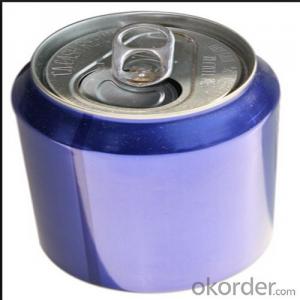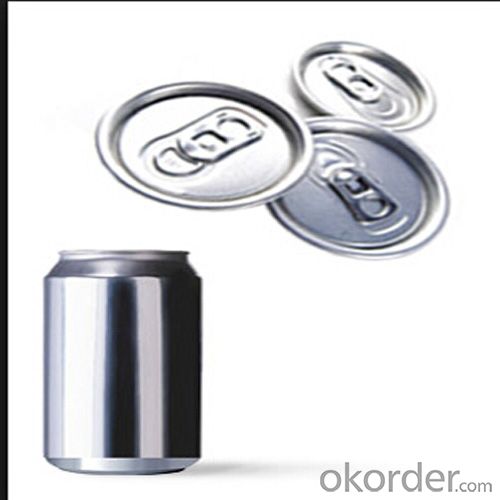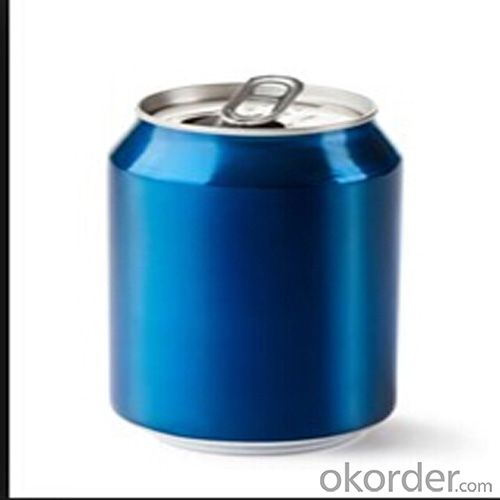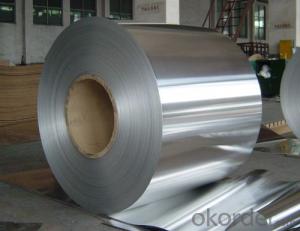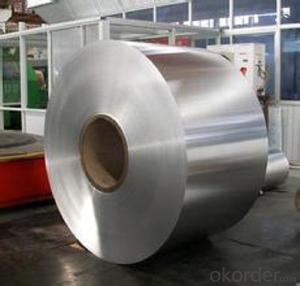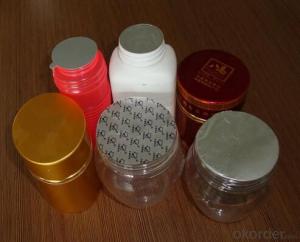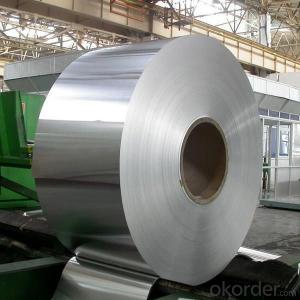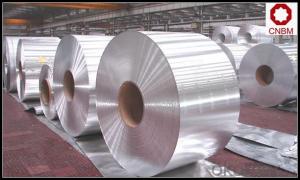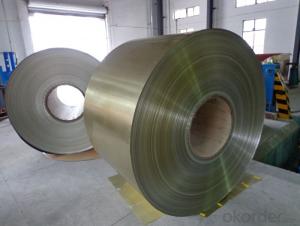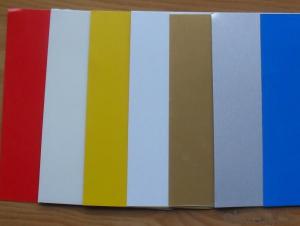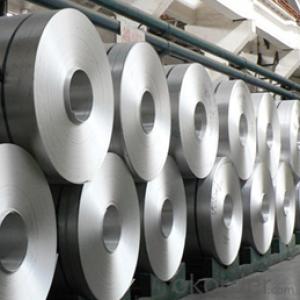020 Aluminum Coil in Alloy 8011 for Bottle Caps
- Loading Port:
- Shanghai
- Payment Terms:
- TT OR LC
- Min Order Qty:
- 5 m.t
- Supply Capability:
- 10000 m.t/month
OKorder Service Pledge
OKorder Financial Service
You Might Also Like
Specification
1.Structure of Aluminum Coil in Alloy 8011 for Bottle Caps Description:
We specially produce and sell all kinds of aluminum foil, coil, sheet and plate with different sizes and applications. For Foil product, the main gauge ranged from 0.006mic to 0.10mm, and width ranged from 200mm to 2000mm. Alloys are 1235/ 1050/1060/1200/8079/8011/8006 etc, and ID is 76mm, 152mm. The main application includes flexible package, cigarette foil, golden card foil, pharmaceutical foil, household foil, container foil, air conditioner foil, lid foil, beer mark foil etc. We also can supply aluminum coil, strip, sheet and plate in alloy of 1000 series, 3000 series, 5000 series, 6000 series and 8000 series etc.
2.Main Features of Aluminum Coil in Alloy 8011 for Bottle Caps:
1. level and smooth on the surface of the platel,
2. the plates' surface is clean without any corrosion, oil stain, puckering slits, scratches visible striation, roll-ed marks, shaken traces, cross grain or other defects. 3. no shipping spots, rolled marks, abrasive marks or dark lines.
4. no yellowish oil stains, bubbles or seams.
3. Aluminum Coil in Alloy 8011 for Bottle Caps Images:
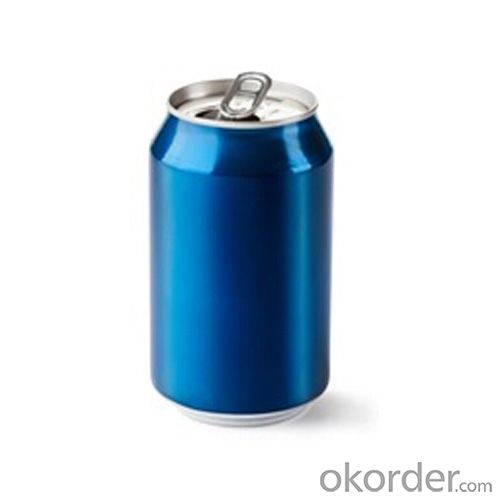
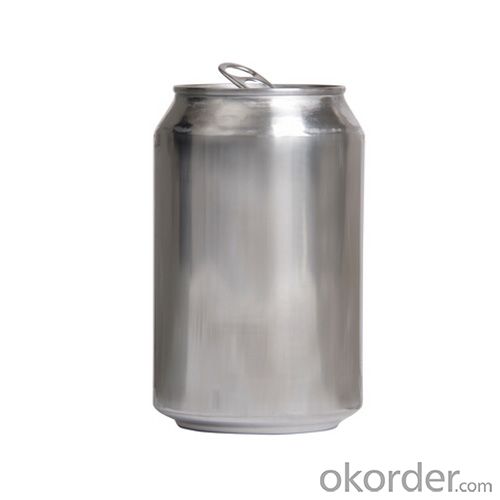
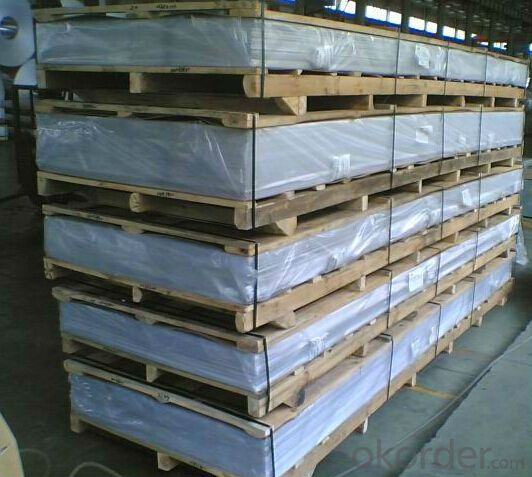
4. Aluminum Coil in Alloy 8011 for Bottle Caps Specification:
Mechanical Property for CC Materials of 8011 Aluminum plate | ||||
Alloy | Temper | Thickness (mm) | U.T.S (Mpa) | Elongation (%) |
8011 | H14 | 0.16~0.23 | 185~205 | >=2 |
Mechanical Property for DC Materials of 8011 Aluminum plate | ||||
Alloy | Temper | Thickness (mm) | U.T.S (Mpa) | Elongation (%) |
8011 | H14 | 0.16~0.23 | 125~155 | >=2 |
5.FAQ
Q1.How long have you been in this product?
A1:More than 10 years.
Q2. What's the minium quantity(MOQ)?
A2. 5 Metric tons
Q3. How long is shipping time?
A3. 7 (ready-made products)-25 days(OEM)
Q4. How do you guarantee the quality?
A4. 1. Cooperating and Exchaning experience with sevral quoted aluminum companies
2. Japanese and Swiss production line and skilled works (regular training and testing)
3. more than 10 years production experience.
Q5. Do you have after sale service?
A5. Yes. Any quality problem occurs within one year, pls take photoes,we will be responsible.
- Q: What are environmentally friendly types of aluminum coil and do they exist?
- <p>Yes, there are environmentally friendly types of aluminum coil. These include recycled aluminum coils, which are made from aluminum that has been reprocessed and reused, reducing the need for new aluminum production and its associated environmental impact. Additionally, aluminum coils with a high recycled content are considered eco-friendly as they contribute to waste reduction and energy conservation. The production of recycled aluminum uses significantly less energy compared to virgin aluminum, making it a more sustainable choice.</p>
- Q: What are the unique considerations or safety measures to be aware of when using aluminum wire in welding?
- <p>When using aluminum wire in a welding process, special precautions include ensuring proper ventilation to avoid inhaling aluminum fumes, which can be harmful. Use the correct polarity and amperage settings on your welding machine, as aluminum requires direct current electrode negative (DCEN) for most processes. Clean the aluminum surface thoroughly to remove any oxides or contaminants that can affect the weld quality. Protect the aluminum from atmospheric contamination with a shielding gas, typically argon or a mixture, during the welding process. Be cautious of the high thermal conductivity of aluminum, which can lead to faster heat dissipation and may require adjustments in welding technique or parameters.</p>
- Q: Are aluminum coils resistant to UV radiation?
- Generally, aluminum coils have resistance to UV radiation. Aluminum is a material known for its high durability and resistance to corrosion. It possesses innate properties that shield it from the harmful impacts of UV radiation. Unlike some other metals, aluminum does not undergo oxidation or deterioration when exposed to sunlight over long durations. This characteristic renders it an excellent option for applications that involve UV exposure, including outdoor structures, solar panels, and automotive components. Nonetheless, it is crucial to acknowledge that although aluminum can withstand UV radiation, it may still experience degradation if not adequately protected or maintained.
- Q: What are the different coil cutting options for aluminum coils?
- There are several coil cutting options available for aluminum coils, depending on the specific needs and requirements of the project. Some of the common coil cutting options for aluminum coils include: 1. Shearing: Shearing is a process that involves cutting aluminum coils using a shear blade. This method is used for straight cuts and is suitable for thinner gauges of aluminum coils. 2. Slitting: Slitting is a process that involves cutting aluminum coils into narrower strips. The coil is passed through a series of rotating circular blades, which cut it into multiple smaller coils of desired widths. Slitting is commonly used to produce coils for various applications such as roofing, automotive, and packaging industries. 3. Cut-to-Length: In this method, the aluminum coil is cut into individual sheets of desired lengths. The coil is first uncoiled, then passed through a leveling machine to remove any coil set or shape defects, and finally, cut into sheets using a flying shear or a stationary shear. Cut-to-length cutting option is commonly used for applications where precise sheet lengths are required. 4. Laser Cutting: Laser cutting is a highly precise and efficient method for cutting aluminum coils. It involves using a high-powered laser beam to melt and vaporize the metal, resulting in clean and accurate cuts. Laser cutting offers the advantage of cutting complex shapes and patterns and is commonly used in the aerospace and electronics industries. 5. Waterjet Cutting: Waterjet cutting is another precise cutting option for aluminum coils. It involves using a high-pressure jet of water mixed with an abrasive material to cut through the coils. Waterjet cutting is particularly suitable for cutting thicker gauges of aluminum coils and offers the advantage of no heat-affected zones or material distortion. These are some of the different coil cutting options available for aluminum coils. The choice of cutting method depends on factors such as the desired end product, required precision, material thickness, and production volume. It is essential to consider the specific requirements of the project to determine the most suitable cutting option.
- Q: Can aluminum coils be used for HVAC condenser coils?
- Indeed, HVAC condenser coils can utilize aluminum coils. In recent times, aluminum coils have gained significant popularity owing to their myriad benefits over conventional copper coils. With their lighter weight and enhanced durability, aluminum coils exhibit superior resistance to corrosion. Additionally, they boast exceptional heat transfer properties that enable efficient refrigerant cooling. Furthermore, aluminum coils prove to be more cost-effective and environmentally sustainable in comparison to copper coils. All in all, opting for aluminum coils for HVAC condenser coils is a viable and advantageous choice.
- Q: What are the common surface treatments applied to aluminum coils?
- The common surface treatments applied to aluminum coils include anodizing, painting, and powder coating.
- Q: How are aluminum coils used in the production of musical instruments?
- Aluminum coils are widely used in the production of musical instruments due to their unique properties and advantages. One of the main uses of aluminum coils is in the manufacturing of guitar pickups. These coils are wound around a magnetic core and serve as the primary component for capturing the vibrations of the guitar strings and converting them into electrical signals. The electromagnetic properties of aluminum make it an excellent material for this purpose as it allows for the precise sensing and amplification of the instrument's sound. In addition to guitar pickups, aluminum coils are also utilized in the production of other instruments such as electric keyboards, synthesizers, and electric violins. These coils are essential for the generation and transmission of sound signals, ensuring high-quality audio output. Aluminum's lightweight nature makes it a preferred choice as it doesn't add unnecessary weight to the instrument, allowing for ease of handling and improved portability. Moreover, aluminum coils are employed in the construction of wind instruments like saxophones and trumpets. They are used to shape the tubing and create the body of these instruments. Aluminum's corrosion resistance properties are particularly valuable in this application, as it helps to maintain the instrument's durability and longevity. Overall, aluminum coils play a vital role in the production of musical instruments by providing a reliable means of capturing, transmitting, and amplifying sound signals. Their unique properties, such as electromagnetic sensitivity and corrosion resistance, make them an ideal choice for ensuring high-performance and longevity in various musical instruments.
- Q: Is it safe or effective to use a hot plate for heating an aluminum coil?
- <p>Yes, you can use a hot plate to heat an aluminum coil, but with caution. Aluminum is a good conductor of heat, so it will heat up quickly. Ensure that the coil is clean and free from any residues that might cause uneven heating or damage. Monitor the temperature closely to prevent overheating, as aluminum can warp or melt at high temperatures. Use a heat-resistant surface or a heat diffuser to distribute the heat evenly and protect the hot plate surface. Always follow safety guidelines and manufacturer recommendations for both the hot plate and the aluminum coil.</p>
- Q: Can kerosene lubricate and cool aluminum coil when continuous punch?
- Yes, because water and oil are not solute, but they will emulsificate.
- Q: How do aluminum coils perform in extreme temperatures?
- Aluminum coils are known for their excellent performance in extreme temperatures. Unlike other metals, aluminum has a low melting point of 660°C (1220°F), which means it can withstand high heat without melting or deforming. This makes aluminum coils ideal for use in industries that require heat resistance, such as automotive, aerospace, and HVAC. In extreme cold temperatures, aluminum coils also perform exceptionally well. Aluminum has a high thermal conductivity, which allows it to efficiently transfer heat. This means that even in freezing conditions, aluminum coils can quickly and effectively warm up and maintain a consistent temperature. Moreover, aluminum is highly resistant to corrosion, making it suitable for use in various outdoor applications where it may be exposed to harsh weather conditions. It does not rust or deteriorate when subjected to extreme temperatures, making it a durable and reliable choice. Overall, aluminum coils are designed to withstand extreme temperatures, making them a preferred choice for industries that require heat resistance and durability.
Send your message to us
020 Aluminum Coil in Alloy 8011 for Bottle Caps
- Loading Port:
- Shanghai
- Payment Terms:
- TT OR LC
- Min Order Qty:
- 5 m.t
- Supply Capability:
- 10000 m.t/month
OKorder Service Pledge
OKorder Financial Service
Similar products
Hot products
Hot Searches
Related keywords
